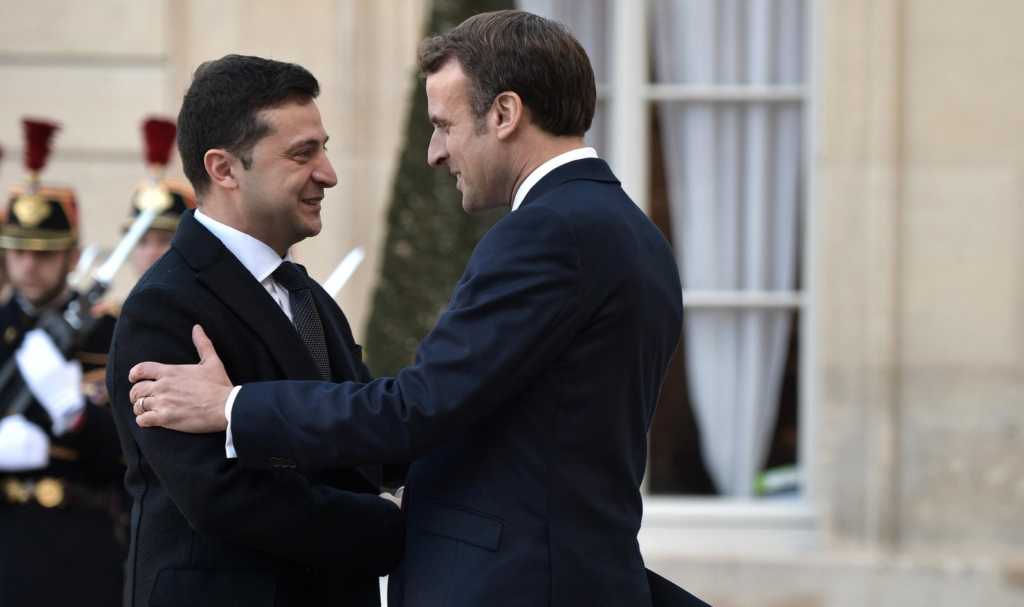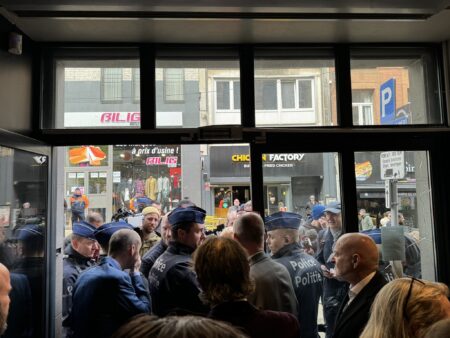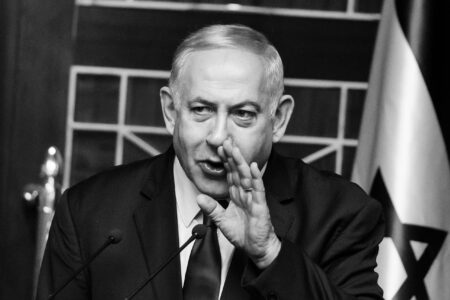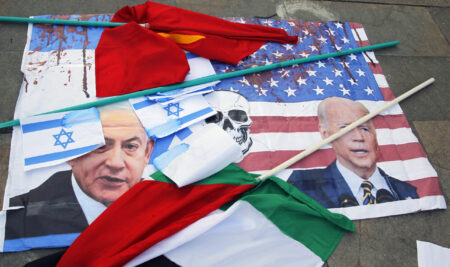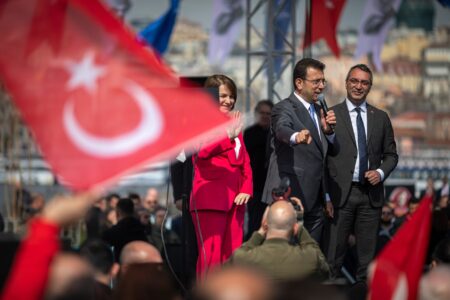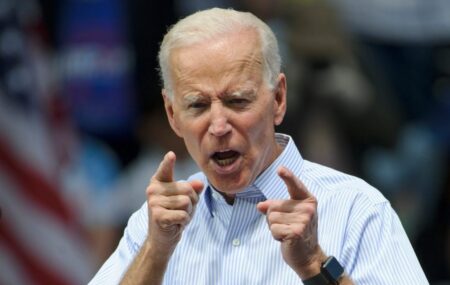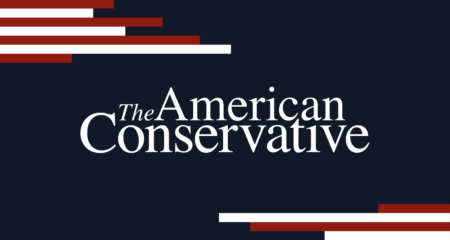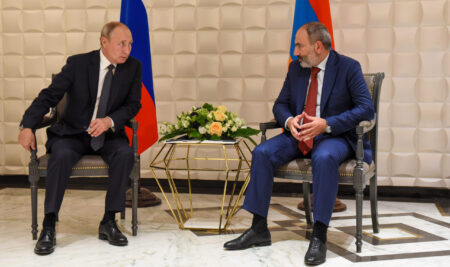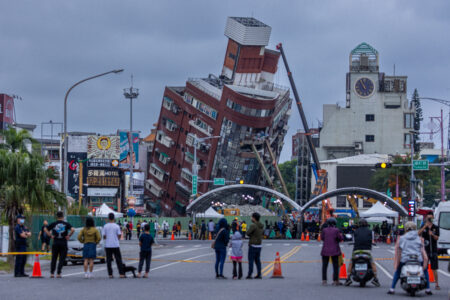Russia’s “Fundamentals of the State Policy of the Russian Federation in the Area of Nuclear Deterrence,” a high-level strategic document, says that Russia “hypothetically” could allow the use of nuclear weapons only “in response to aggression using WMD [weapons of mass destruction]” or if there is “aggression using conventional weapons, when the very existence of the state is threatened.”
Responding to France’s President Emmanuel Macron’s February 6 statement that “no option should be discarded” in ensuring the defeat of Russia, including “troops on the ground” in Ukraine, Russia’s President Vladimir Putin said that “we are ready to use any weapon, including [tactical nuclear weapons], when it comes to the existence of the Russian state and harm to our sovereignty and independence. Everything is spelt out in our strategy, we have not changed it.”
Macron replied that France is also a nuclear power. “We must first and foremost feel protected,” Macron said, “because we are a nuclear power.” He then added, “We are ready; we have a doctrine [for the use of nuclear weapons].”
France is ready to send troops into Ukraine “to counter the Russian forces” and even to prepare for nuclear war. In a March 19 opinion piece in the French paper Le Monde, General Pierre Schill, Chief of the French Army Staff, declares that “nuclear deterrence safeguards France’s vital interests.” Reminding the world of France’s “international responsibilities” and “interests” and “defense agreements,” he says that “the French army is preparing for the toughest engagements, making this known and demonstrating it.”
But what do the French really mean by saying they are “preparing for the toughest engagement” and that Europe must be “ready” to have “troops on the ground” in Ukraine?
Macron has said that NATO must not discard the option of “troops on the ground” to ensure that “Russia does not win.” But win what? Does Macron want to ensure that Russia does not defeat Ukraine for Ukraine’s sake, or does he mean that Russia should not win in Ukraine for the subsequent defense of Europe?
Macron said that the time was coming “in our Europe where it will be appropriate not to be a coward” and that it is time for a “strategic leap.” He pressed Germany to send their long-range Taurus missiles, reminding them that they once said, “‘Never, never tanks; never, never planes; never, never long-range missiles’…. I remind you that two years ago, many around this table said: ‘We will offer sleeping bags and helmets.’”
When it came to the option of sending troops into Ukraine, Macron said that anyone who advocates “limits” on how the West helps Ukraine “chooses defeat.” He insisted that “if the situation should deteriorate, we would be ready to make sure that Russia never wins that war.” Europe must be “ready,” he said, “to reach the means to achieve our objective, which is that Russia does not win.”
It sounded as if Macron was talking about Russian victory in Ukraine again when he considered the threshold for sending troops. “We’re not in that situation today,” he said, but “all these options are on the table.” Following a March 7 meeting with parliamentary parties, Fabien Roussel, national secretary of the French Communist Party, reportedly said that “Macron referenced a scenario that could lead to intervention [of French troops]: the advancement of the front towards Odessa or Kiev.”
Macron’s objective again seemed to solely be Ukraine when he said in a March 14 interview, “We are doing everything we can to help Ukraine defeat Russia, because I will say it very simply: there can be no lasting peace if there is no sovereignty, if there is no return to Ukraine’s internationally recognized borders, including Crimea.”
But, against all these apparent narrow references to Ukraine, Macron’s subsequent discussions of the threshold for troops sounded more as if they were about the defense of Europe than of Ukraine. He said that “war is back on our [i.e. Europe’s] soil” and that Russia is “extending every day their threat of attacking us even more, and that we will have to live up to history and the courage that it requires.”
On March 14, Macron, again expressing his position that sending troops from NATO countries is an option that should not be discarded, said that “to have peace in Ukraine, we must not be weak.” This time, he gave as his reason that Russia’s invasion of Ukraine was “existential for our Europe and for France.”
He proceeded to say that “it wouldn’t be us” who would trigger such a move and that France would not lead an offensive into Ukraine against Russia. “It would be Russia’s sole choice and sole responsibility,” he said. And then he added, “If war was to spread to Europe,” it would “be weak, to decide today that we would not respond.”
But even if Macron means defending Europe from Russia, does he mean from an actual attack or simply a potential attack?
With several of his aforementioned statements, Macron sounds like he means that Europe must be ready to defend against an actual attack from Russia after it defeats Ukraine. Yet elsewhere, Macron sounds like he is referring only to a potential attack, saying that Russia must not be victorious in Ukraine because that “would reduce Europe’s credibility to zero” and would mean that “we have no security.”
Interpreting Macron’s motives may be even more difficult than ascertaining his statements’ bare meaning. Why would Macron express the previously inexpressible and risk crossing the red line of a third world war?
It is of course impossible to know Macron’s mind, so any analysis is speculative. But there are at least three possibilities.
The first is that the intended target of his comments is not Russia at all, but the U.S. and Germany. With American war funding struggling against a congressional dam and Germany refusing to send Taurus long-range missiles, Macron may be trying to apply psychological pressure to his allies to send Ukraine more money and weapons assuming they would find that option more palatable than going even further and sending troops.
The second is that the intended target of his comments is Russia. In this possibility, the goal is to create “strategic ambiguity.” The purpose would be, as explained by one French diplomat, so that Russia, as it advances west in Ukraine, cannot rely on the assumption “that none of Ukraine’s partner countries will ever be deployed” to Ukraine.
The French newspaper Le Monde reports that “Macron’s office explained that the aim is to restore the West’s ‘strategic ambiguity.’ After the failure of the Ukrainian 2023 counter-offensive, the French president believes that promising tens of billions of euros in aid and delivering—delayed—military equipment to Kyiv is no longer enough. Especially if Putin is convinced that the West has permanently ruled out mobilizing its forces.”
The third possibility is that the intended target of his comments is Europe. Europe must prepare for the possibility of a Trump administration weakening its commitment to Europe and NATO. That would leave Europe with more responsibility for the defense of Ukraine and of itself. While Germany has been the economic leader of Europe, France has seen itself as the security leader.
One diplomat told Le Monde that while Germany “is afraid of escalation…. France wants to give the impression that it isn’t afraid.” Macron “may have wanted to make it clear to Scholz that their two countries are not in the same league” as Macron positions France to be the security leader of Europe in a post-Biden Trump-led world.
Macron has opened the door to the discussion of Western troops on the ground in Ukraine. With the risks that come with opening that door, it will be important for everyone to clarify both Macron’s threshold and his motivation for sending troops to Ukraine.
Read the full article here




